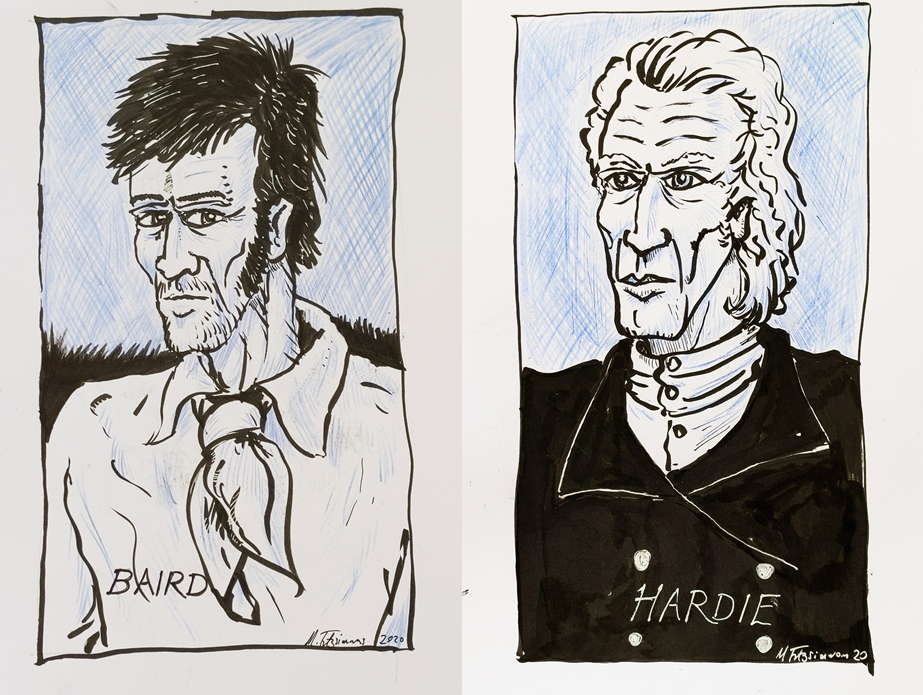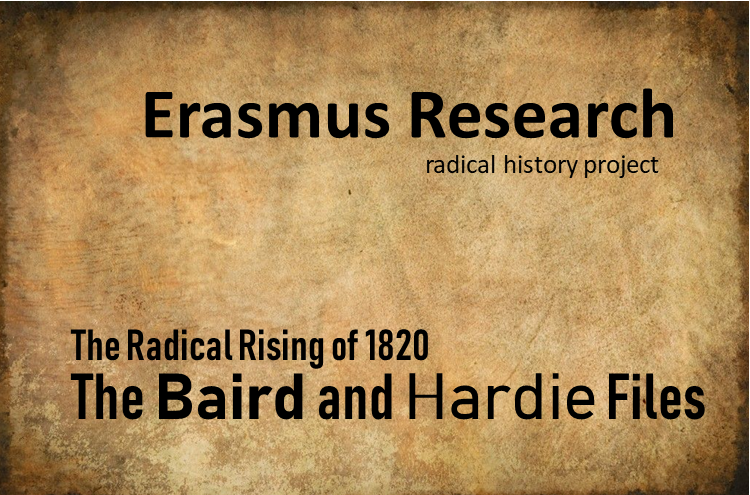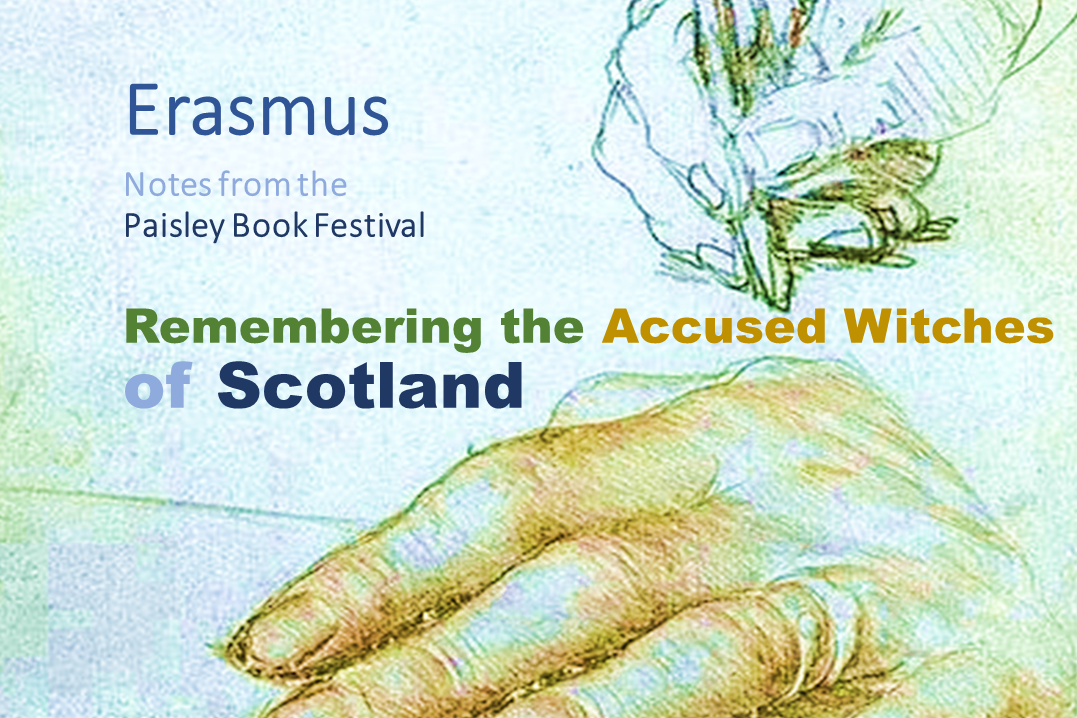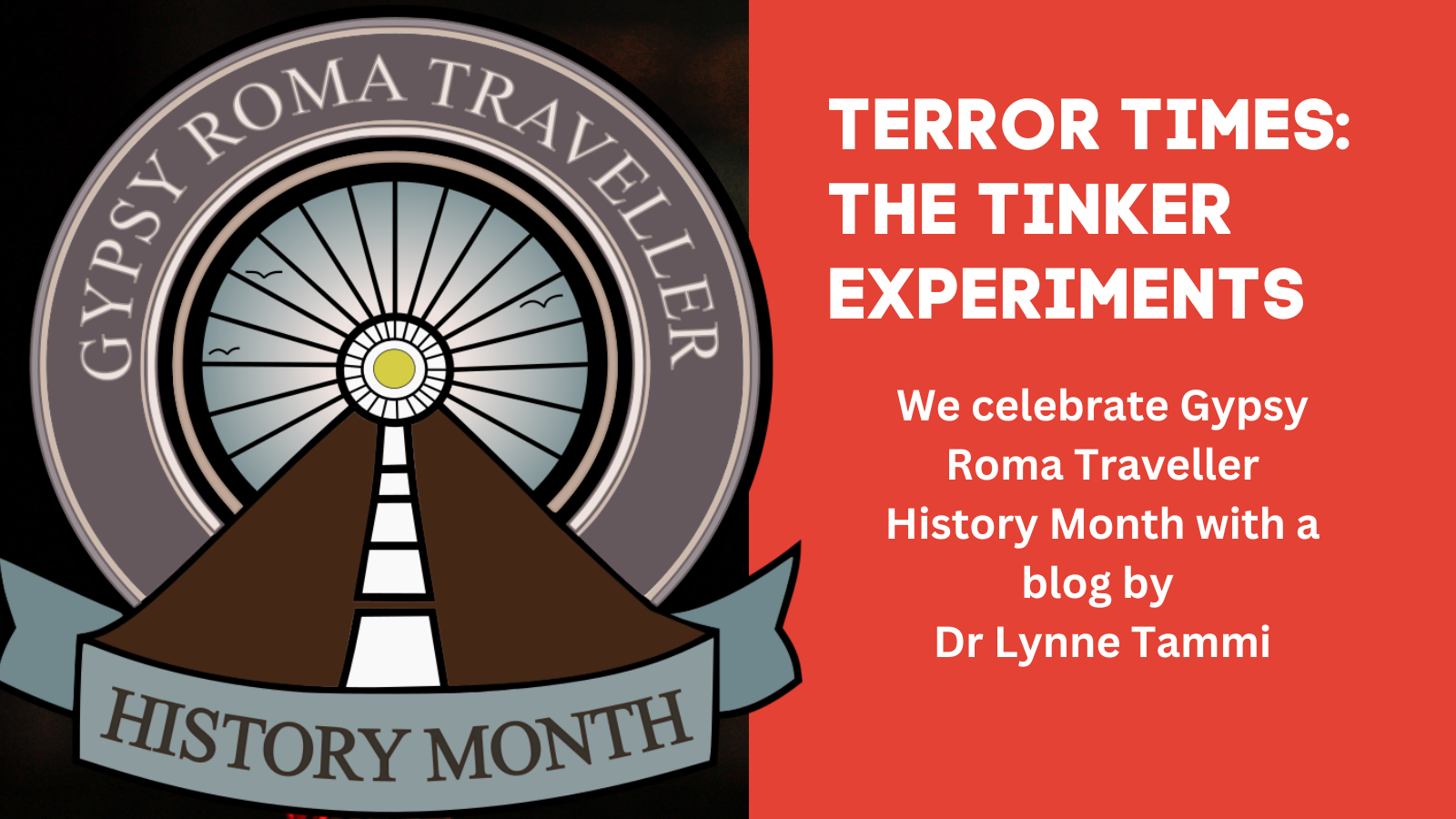
CHAPTER IX – 1820
This is the first section of Chapter IX of the serialisation, the wording reproduced exactly as it appeared in the Stirling Sentinel, on Tuesday 9th April 1889.
SOME OF THE JURORS – SERGEANT HULLOCK’S UNMANNERLY CONDUCT TOWARDS JEFFREY – ANICDOTE OF THE SHERRIF OF STIRLINGSHIRE – GAGGING THE NEWSPAPER PRESS – THE LORD ADVOCATE’S OPENING ADDRESS – EVIDENCE FOR THE CROWN
Patrick Doig, who was excused from serving on the jury that tried Andrew Hardie because he was a medical practitioner, was the son of the celebrated Dr David Doig, Rector of the Stirling Grammar School. He went out to Jamaica, where he amassed a considerable fortune by his practice as physician. He also served as Colonel of the Militia in the island of Antigua. Returning home, he settled in Stirling, having purchased Snowdoun House, now the property of Colonel Nightingale. He dies in 1833, at the age of 71, leaving a widow who survived till the year 1849.
Alexander Riddell, the Coppersmith, who was excused on account of his deafness, had his shop in Broad Street. He was a funny little man and went by the name of “Cocky” Riddell, who erected a gasometer at the back of his premises (No. 16 Broad Street) and manufactured the gas himself. Two of the houses in Queen Street (Nos 31 and 32) were erected by him. James Wright, writer, one of the jury, was a brother of provost wright and built Mar Place House, now occupied by ex-councillor Cunninghame.
James Foreman, bookseller, challenged by the prisoner, had his shop in Broad Street (No 10.) He entered the Town Council in 1802 and was Provost of the Burgh in 1830, 1831, and 1833. As will afterwards be seen, it was on account of his objections that the Glasgow Reformers of 1832 were prohibited from erecting a monument to Baird and Hardie in Stirling Churchyard.
Alexander Wilson, carpet manufacturer, one of the jury, was the grandfather of Colonel Wilson of Bannockburn, and another carpet manufacturer, John Thomson, who was challenged by the prisoner, was provost in 1821 and 1822. In the latter year he went to Edinburgh to meet King George IV, on the occasion of his visit to Scotland, and in order to appear in a fitting manner before his Majesty, he got official robes for himself at the expense of the Corporation. The Provost and Magistrate’s gold chains of office also date from this event. Provost Thomson, following the example of other large manufacturers, issued 5s notes on his own account, which were embellished with an engraving of his house. This engraving was known as “the house that Jack built” and notes of it are esteemed as great local curiosities. Provost Thomson is commemorated by a stained glass window in the East Church, erected by the Ainslie Trustees, in accordance with the will of the late Mr Ainslie or Fort William, his son in law, Robert Young, also a carpet manufacturer, and who was challenged by the prisoner, was one of the Bailies of the town at the time.
Robert Gillies, tanner, challenged by the prisoner, was a Bailie in 1822, and provost in 1823 and 1824. Peter Littlejohn of Clifford Park, challenged by the prisoner, was a member of an influential Stirling family, which divided the government of the burgh with the McKillops and the Banks, between whom there was great rivalry, party feeling running quite as high as in recent years. Robert Sconce, procurator fiscal, was the father of the late Sheriff Sconce, and Robert Campbell, joint fiscal, was the father of the late Robert Campbell, Procurator Fiscal, and grandfather of Mr J. W. Campbell, banker.
In our last chapter we mentioned that Mr Jeffrey (afterwards Lord Jeffrey), counsel for Mr Hardie objected to the appearance of Sergeant Hullock for the Crown, on the ground that he was a member of the English bar. This objection was dismissed, but Hullock seems to have borne a grudge against Jeffrey for making it, and comported himself uncourteously towards him more than once during the trial. A story is told that Ranald MacDonald, of Staffa, Sheriff of Stirlingshire, though a High Tory and strongly in favour of the prosecution of the Radicals, could not restrain his Scottish indignation at Hullock’s conduct.

After one of Hullock’s unmannerly exhibitions, the worthy Sheriff threw a note to Jeffrey somewhat in these terms, “Leave the county – challenge the —; and I’ll be your second.” Happily the wreath of the contestants is mollified by the temperate interposition of the bench, and no rencontre ensued. Hullock was not invincible to the brilliancy of Jeffrey’s oratory, for it is related that in the course of the tour of the Commission he had heard some speech compared to one of Jeffrey’s, whereupon he remarked in tones, more expressive than polite –“You may as well compare a gallon of hog’s wash to a bottle of Champagne.” Hullock was gourmand, and died of a surfeit occasioned by eating to excess of some favourite dish.
After these digressions, we return to the trial of the unfortunate Hardie. The empanelling of the jury was followed by a curious announcement by the Lord President, quite in the spirit of the time when the newspaper press was gagged by the authorities of the land. “I have to announce”, (said his Lordship) to all persons concerned, that no part of the proceedings of this trial (and more specially the speeches of the Counsel) that no part of the evidence be published, till this and all the trials, in this and the other counties of this Commission, be brought to a conclusion, otherwise the severest punishments that this Court can inflict will be pronounced against them.
It is essential to justice; for it is in vain that witnesses are shut up, if they can read the next day in the newspapers what has been said by others in Court; therefore let all persons take care what they are about for the severest punishments will be inflicted upon them.” In consequence to this threat no newspaper dared to publish a report of the trial, and it was not until 1825 that the official shorthand writer’s report saw the light. We would give much now for a description of Hardie’s trial by an eyewitness, such as is common on the newspapers of the present day. Our information is solely obtained from the dry official report, which is doubtless accurate, but lacks the touches which give animation to the scene.
To be continued on Thursday 12th November 2020






